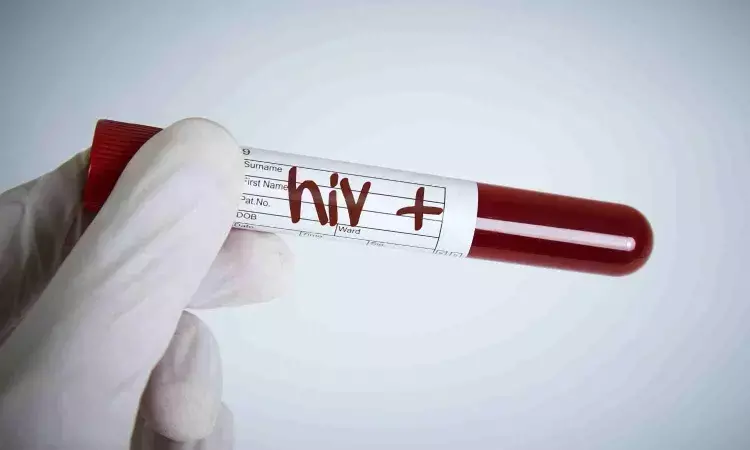- Home
- Medical news & Guidelines
- Anesthesiology
- Cardiology and CTVS
- Critical Care
- Dentistry
- Dermatology
- Diabetes and Endocrinology
- ENT
- Gastroenterology
- Medicine
- Nephrology
- Neurology
- Obstretics-Gynaecology
- Oncology
- Ophthalmology
- Orthopaedics
- Pediatrics-Neonatology
- Psychiatry
- Pulmonology
- Radiology
- Surgery
- Urology
- Laboratory Medicine
- Diet
- Nursing
- Paramedical
- Physiotherapy
- Health news
- Fact Check
- Bone Health Fact Check
- Brain Health Fact Check
- Cancer Related Fact Check
- Child Care Fact Check
- Dental and oral health fact check
- Diabetes and metabolic health fact check
- Diet and Nutrition Fact Check
- Eye and ENT Care Fact Check
- Fitness fact check
- Gut health fact check
- Heart health fact check
- Kidney health fact check
- Medical education fact check
- Men's health fact check
- Respiratory fact check
- Skin and hair care fact check
- Vaccine and Immunization fact check
- Women's health fact check
- AYUSH
- State News
- Andaman and Nicobar Islands
- Andhra Pradesh
- Arunachal Pradesh
- Assam
- Bihar
- Chandigarh
- Chattisgarh
- Dadra and Nagar Haveli
- Daman and Diu
- Delhi
- Goa
- Gujarat
- Haryana
- Himachal Pradesh
- Jammu & Kashmir
- Jharkhand
- Karnataka
- Kerala
- Ladakh
- Lakshadweep
- Madhya Pradesh
- Maharashtra
- Manipur
- Meghalaya
- Mizoram
- Nagaland
- Odisha
- Puducherry
- Punjab
- Rajasthan
- Sikkim
- Tamil Nadu
- Telangana
- Tripura
- Uttar Pradesh
- Uttrakhand
- West Bengal
- Medical Education
- Industry
Pitavastatin Promotes Heart Health in HIV Patients by Stabilizing Atherosclerotic Plaques, New Study Finds

Jharkhand Court Upholds Inmate Health Rights
USA: A secondary analysis of the REPRIEVE randomized clinical trial has shed light on pitavastatin's potential role in promoting atherosclerotic plaque stabilization among patients with HIV. The finding, published in JAMA Cardiology, emphasizes the drug's ability to influence procollagen pathways, potentially transforming vulnerable atherosclerotic plaques into more stable coronary lesions.
Results from the secondary analysis suggest that pitavastatin significantly increases procollagen C-endopeptidase enhancer 1 (PCOLCE) levels, a key molecule involved in collagen synthesis and deposition. Elevated PCOLCE levels are linked to stabilizing atherosclerotic plaques, which play a pivotal role in reducing the risk of coronary events.
Patients with HIV are at an elevated risk of cardiovascular disease, partly due to chronic inflammation and immune activation. Pitavastatin’s ability to mitigate these risks through plaque stabilization offers a promising therapeutic approach for managing cardiovascular complications in this high-risk population.
In a mechanistic substudy of the Randomized Trial to Prevent Vascular Events in HIV (REPRIEVE) randomized clinical trial, pitavastatin was found to lower noncalcified plaque (NCP) volume. However, the specific proteins and gene pathways driving these changes in coronary plaque composition are yet to be identified. Considering this, Márton Kolossváry, Metabolism Unit, Massachusetts General Hospital, Harvard Medical School, Boston, and colleagues aimed to explore biological pathways beyond low-density lipoprotein cholesterol (LDL-C) and link statin effects to reduced NCP volume and enhanced plaque stabilization in people with HIV (PWH), targeted discovery proteomics and transcriptomics approaches will be employed.
For this purpose, the researchers conducted a post hoc analysis of the double-blind, placebo-controlled REPRIEVE randomized clinical trial, which included participants who underwent coronary computed tomography angiography (CTA), plasma protein analysis, and transcriptomic analysis at both baseline and a 2-year follow-up. The trial enrolled people with HIV from 2015 to 2018 at 31 research sites across the United States. Eligible participants were those without known cardiovascular diseases, taking antiretroviral therapy, and with a low to moderate 10-year cardiovascular risk.
Oral pitavastatin calcium, administered at a daily dose of 4 mg, was the intervention in this trial. The primary outcomes focused on the relative changes in plasma proteomics, transcriptomics, and noncalcified plaque (NCP) volume among participants receiving pitavastatin than those receiving a placebo.
The analysis revealed the following findings:
- Among 558 participants (mean age 51 years; 82% male) in the proteomics assessment, 272 received pitavastatin, and 286 received a placebo.
- Pitavastatin increased levels of procollagen C-endopeptidase enhancer 1 (PCOLCE), neuropilin 1 (NRP-1), major histocompatibility complex class I polypeptide-related sequence A (MIC-A), and B (MIC-B).
- Pitavastatin decreased levels of tissue factor pathway inhibitor (TFPI), tumor necrosis factor ligand superfamily member 10 (TRAIL), angiopoietin-related protein 3 (ANGPTL3), and mannose-binding protein C (MBL2).
- The greatest association was observed with PCOLCE, a rate-limiting enzyme in collagen deposition, showing an effect size of 24.3%.
- Transcriptomic analysis showed increased expression of individual collagen genes and collagen gene sets.
- Among 195 individuals with plaque at baseline, changes in NCP volume were most strongly associated with changes in PCOLCE levels (%change NCP volume/log2-fold change = -31.9%), independent of LDL-C level changes.
- Changes in PCOLCE were most strongly associated with a reduction in the fibro-fatty component of NCP (%change fibro-fatty volume/log2-fold change = -38.5%).
- There was a nonsignificant increase in calcified plaque (%change calcified volume/log2-fold change = 34.4%).
"Findings from this secondary analysis of the REPRIEVE randomized clinical trial suggest that PCOLCE may play a key role in the plaque-stabilizing effects of statins. This occurs through the promotion of collagen deposition in the extracellular matrix, which transforms vulnerable atherosclerotic plaque phenotypes into more stable coronary lesions," the researchers concluded.
Reference:
Kolossváry M, Schnittman SR, Zanni MV, et al. Pitavastatin, Procollagen Pathways, and Plaque Stabilization in Patients With HIV: A Secondary Analysis of the REPRIEVE Randomized Clinical Trial. JAMA Cardiol. Published online December 11, 2024. doi:10.1001/jamacardio.2024.4115
Dr Kamal Kant Kohli-MBBS, DTCD- a chest specialist with more than 30 years of practice and a flair for writing clinical articles, Dr Kamal Kant Kohli joined Medical Dialogues as a Chief Editor of Medical News. Besides writing articles, as an editor, he proofreads and verifies all the medical content published on Medical Dialogues including those coming from journals, studies,medical conferences,guidelines etc. Email: drkohli@medicaldialogues.in. Contact no. 011-43720751


